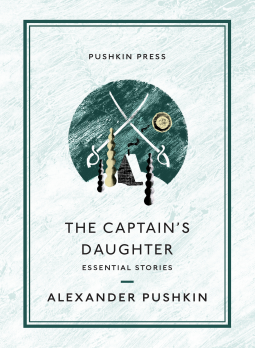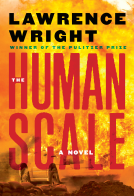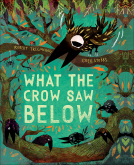
The Captain's Daughter
Essential Stories
by Alexander Pushkin
This title was previously available on NetGalley and is now archived.
Send NetGalley books directly to your Kindle or Kindle app
1
To read on a Kindle or Kindle app, please add kindle@netgalley.com as an approved email address to receive files in your Amazon account. Click here for step-by-step instructions.
2
Also find your Kindle email address within your Amazon account, and enter it here.
Pub Date Jun 15 2021 | Archive Date Jun 17 2021
Pushkin Press | Pushkin Collection
Talking about this book? Use #TheCaptainsDaughter #NetGalley. More hashtag tips!
Description
As complex as they are gripping, Pushkin's stories are some of the greatest and most influential ever written. Foundational to the development of Russian prose, they retain stunning freshness and clarity, more than ever in Anthony Briggs's finely nuanced translations.
These are stories that upend expectations at every turn: in 'The Captain's Daughter', Pushkin's masterful novella of love and rebellion set during the reign of Catherine the Great, a mysterious encounter proves fatally significant during a brutal uprising, while in 'The Queen of Spades' a man obsessively pursues an elderly woman's secret for success at cards, with bizarre results.
Advance Praise
A dazzling new collection of Pushkin's fiction, in definitive translations by the acclaimed Anthony Briggs
As complex as they are gripping, Pushkin's stories are some of the greatest and most influential ever written. Foundational to the development of Russian prose, they retain stunning freshness and clarity, more than ever in Anthony Briggs's finely nuanced translations.
These are stories that upend expectations at every turn: in 'The Captain's Daughter', Pushkin's masterful novella of love and rebellion set during the reign of Catherine the Great, a mysterious encounter proves fatally significant during a brutal uprising, while in 'The Queen of Spades' a man obsessively pursues an elderly woman's secret for success at cards, with bizarre results.
Available Editions
| EDITION | Other Format |
| ISBN | 9781782276388 |
| PRICE | $18.00 (USD) |
| PAGES | 224 |
Featured Reviews
 Chiara L, Reviewer
Chiara L, Reviewer
The Captain’s Daughter is a wonderful short historical novel/novella by Pushkin, a masterpiece in concision and laconicity that so far has not been sufficiently understood or appreciated. The book also includes The Station Master (from the Tales of Belkin) and the Queen of Spades. A new translation and introduction that does justice to Pushkin’s prose, which is brilliant, concise, ironic and fresh.
The Captain’s Daughter recounts the story of young Grinyov, who starts out as a dissipated, foolish nobleman and is sent to serve in the army, accompanied by the faithful servant Savelych. On their way they are caught up in a snowstorm and they are saved by a man who leads them to a shelter. In exchange Grinev gives him his fur jacket to thank him. Grinyov reaches his post and falls in love with the captain’s daughter. At the same time news arrive of a Cossack insurrection led by Pugachev, an impostor who claims to be the tsar. Pugachev turns out to be the rescued man and will spare Grinyov. After a series of misadventures involving more or less villainous characters, Pugachev is captured and executed and Grinyov will be reunited with his beloved.
This tale contains many elements typical of fairy tales (protagonist, antagonist, etc) and is delivered to us via a manuscript, a subtle way of commenting on the events: the story represents a “reassuring” world view from the perspective of the class to which Grinyov belongs (the grateful servant, the magnanimous nobleman, the villainous rebel), but Pushkin, who had been exiled by Alexander I for his libertarian verses, by using the device of the manuscript and of the fairy tale cleverly manages to comment and give representation to those who were oppressed by the Tsar at the time, i.e. Old Believers, Bashkirs, Cossacks and peasants. It is also, as Ju. Lotman put it, a way to talk about freedom. All characters. noblemen and peasants are at odds with the law and they all (including Catherine II), overstep and act outside of what is prescribed or imposed to them.
In The Station Master, Dunya, the station master’s daughter, elopes with an officer, breaking the hierarchies prescribed by society and that positioned the Station Master at the bottom. With his ambiguity and irony Pushkin once again cleverly defies any expectation of finding a fallen woman’s plot.
The Queen of Spades is a brilliant tale of the supernatural where an officer frightens to death an old countess-gambler to obtain the secret of her success and ends up dreaming and having visions of her that will lead him to madness.
A classic, a brilliant, necessary read,
This collection contains the novella “The Captains Daughter” and two short stories “The Stationmaster” and “The Queen of Spades”. I very much enjoyed reading this translation, particularly the final story, a gambling story where a particular sequence of cards is said to always win. The secret held by an elderly countess becomes the obsession of Hermann and he desperately wants to find it out. An excellent read.
 Mell K, Reviewer
Mell K, Reviewer
I aleays love a good piece of classic literature and I would feel stupid rating the writing of a great mind like Pushkin!
I loved it, I've read it before so the only thing I can say it that it might be better read in a language closer to Russian. I read it in Serbian and now English, and I can say that sooo much of the spirit and nature of the language is lost in the translation.
Pushkin is an amazing writer and thought classic literature might not be for everyone, you should definitelly give it a try!
The Captain's Daughter: Essential Stories is a collection of two short stories and a novella from the founding father of modern Russian literature and language. The Captain's Daughter is told on behalf of Pyotr Andreevich Grinev, a young officer serving in the Belogorsk fortress near Orenburg. Service in the fortress, the love story of the protagonist and the daughter of the commandant Maria Mironova - all these events unfold against the background of the Peasant War of 1773-1775 under the leadership of Yemelyan Pugachev; the tale demonstrates perfectly Pushkin's unparalleled skill at blending fiction and history. The Stationmaster is a short story of a seduction and abduction of a young girl and proves to be one of Pushkin’s best works. At first sight an innocent kiss, the parting gift of Dunia to the traveler sends the mundane world of the stationmaster Samson Vyrin into complete disorder.
The Queen of Spades, one of Pushkin's most popular and chilling short stories, tells of an inveterate card player who develops a dangerous obsession with the secret of an old lady's luck, which he believes will bring him the wealth he craves. Pushkin’s prose tales are the foundation stones on which the great novels of Turgenev, Tolstoy, and Dostoevsky were built, but they are also brilliant and fascinating in their own right. In both prose and verse, Pushkin was one of the world’s great storytellers: direct and dramatic, clear-sighted, vivid, and passionate. As complex as they are gripping, Pushkin’s stories are some of the greatest and most influential ever written. Foundational to the development of Russian prose, they retain stunning freshness and clarity, more than ever in Anthony Briggs’s finely nuanced translations. Highly recommended.
This is a collection of three of Pushkin’s novellas that include The Captain’s Daughter, The Stationmaster, and The Queen of Spades. These were quintessential Russian literature at its finest.
The Captain’s Daughter is a love story between two young people torn apart by the consequences of war. To me, The Captain’s Daughter was the most “caricatured” out of the three stories. You have the heroic boy, the helpless girl in need of saving, the ridiculous servant, and the evil, uneducated villain. Despite being formulaic, the writing was generally brilliant. I think some of the meaning got lost in translation, or perhaps it was my own ignorance in regard to Russian history.
The Stationmaster is a cautionary tale of lost virtue and a father’s grief. (Pushkin neatly ties in the story of the Prodigal Son to this one.) This one made me glad that I don’t live in the 19th century. Dunya’s father was a bit naïve, practically sending her off to her “fallen state” with well wishes, but this was a tragic story, and it made for good reading.
Finally, The Queen of Spades is a deliciously vengeful story concerning the problems of gambling and messing with the wrong old lady. I believe this moral of this one is to be happy with your lot in life and not play the fates.
All in all, this was a solid read. I feel like I have an understanding for Pushkin’s work—it’s very Russian. It was a quick read, easy to understand, and the stories were thoroughly enjoyable.
Thank you to NetGalley and Pushkin Press for providing me with an ARC.
 Robert S, Reviewer
Robert S, Reviewer
This outstanding collection contains a short novel - 'The Captain's Daughter' - and two shorter stories. The novel is grand romantic adventure, complete with exotic locations, damsels in distress, dastardly villains, and big historic events. Compare it to Sir Walter Scott or James Fenimore Cooper's 'The Last Mohican' - rough contemporaries of Pushkin - similar tales, but Pushkin's version is much more economically told, with more emphasis on character development than wide-screen action.
As a bonus, the short stories are both excellent: 'The Stationmaster' is generally recognized as Pushkin's finest short story, and 'The Queen of Spades' is a memorable psychological study of greed, self-delusion, and manipulation (plus ghosts!).
While I can't speak to the faithfulness of the translation, the English is contemporary, colloquial, and without any of the stilted language that can creep into translations of Russian classics. The translator also provides a helpful introduction that helps set Pushkin into context in Russian and European literature.
 Reviewer 762493
Reviewer 762493
Pushkin's style is short and to the point; he's not a man to write a paragraph when a word would suffice. The translation is lovely and fluent, flowing off the page beautifully and making this volume a pleasure to read.
The book is pretty short, which might sound a bit unusual to those who have hauled 19th century fiction around for class or entertainment, and it contains three stories: "The Captain's Daughter" (a really short novel), "The Stationmaster" (a short story); and "The Queen of Spades" (another short story).
"The Captain's Daughter" is the light-hearted, adventurous tale of a young man (17 years old) sent by his father to serve in the army and become a man. His father uses his connections to get him sent far from civilization to ensure he wouldn't fall in with the wrong crowd, and sends along a faithful servant. The son is naive, honest and enthusiastic, while the servant is old and desperately trying to hold things together and ensure sanity. Neither of them is Right in their approach to life (as the story shows), but the novel doesn't have time to preach; the young man runs into a bad influence right off the bat, he helps a poor (and very shady) old man by giving him an expensive coat, falls in love with the beautiful and honest captain's daughter and participates bravely in a war.
It's all in good fun, although it has its brutal moments; and it relies heavily on coincidence, but in an exciting way. Probably a satire of late 18th and early 19th Russian society and military, it's still quite pleasant to read today. It rather reminded me of Voltaire's "Candide", in a few ways: short, light, humorous, biting, probably referencing things which were debated themes in their day, but which are interesting details now, and adventurous.
"The Stationmaster" is a very different sort of story: told from the perspective of a frequent traveler, it follows the sad tale of a stationmaster who lived happily with his beautiful and delightful daughter, until she ran away from home. A sadder tone, but a lovely story.
"The Queen of Spades" is something different yet again - I'd call it a gothic, myself. An old countess is said to possess a secret that could win anyone three hands at cards, but the secret comes with strings attached; a young man hears of this and becomes determined to find that secret at nearly any cost.
All in all, a lovely volume that I enjoyed much more than I was expecting to; the pages just flew by. Many thanks to the published and NetGalley for providing an ARC in exchange for an honest review.
A wonderful translation of Pushkin’s works. As a first time reader of Pushkin, I found this collection of short stories an excellent place to start. I would highly recommend this collection as an introduction to Alexander Pushkin.
First sentence: Alexander Pushkin (1799–1837) is the father of modern Russian culture, the man who reformed the Russian literary language, and, in a short lifetime of less than thirty-seven years, left a legacy of outstanding works in several genres, some of them newly invented.
Premise/plot: This book features the novella, The Captain's Daughter, and two short stories The Stationmaster and The Queen of Spades. It also features a spoiler-heavy introduction. The book, as a whole, introduces new readers to this Russian author.
The Captain's Daughter (1836) takes up the bulk of the book. Pyotr Grinyov, our hero, has many adventures and misadventures. But those misadventures may just be his salvation in the end. The novel soon has him underway to his first military posting. It is remote, rural, far from ideal--as far as he's concerned.
I could be like the introduction and spoil every little detail of the novel. But I won't. I refuse to play that game. No, I'll simply share that it's told in first person and he's recounting his adventures/misadventures. The incidences in his life--some apparently minor, others not so much--that has led him to where he is.
The title gives away that at some point there will be a captain and a captain's daughter...but I will leave it to readers to connect the dots to predict how it will turn out.
The Stationmaster (1831) is another first hand narrative. If the narrator is clearly named, I personally missed it. But essentially he is recounting three separate visits to this out of the way station. On his first visit, he meets a beguiling, beautiful, flirtatious young woman, Dunya, who is the station master's daughter. On the second visit, he reintroduces himself to the father and learns that the daughter has long been gone. The father is distraught about the circumstances and fears the worst. The third visit has the potential to be the most depressing ever ending (for a non Thomas Hardy book), but a twist makes it only slightly sad or mildly happy.
The Queen of Spades (1834) is the final short story. Hermann, our anti-hero, stars in this short story. His friend tells the story of his grandmother--an elderly countess. This story--a story of a SECRET that every gambler would kill for--leads to obsession and.... well, let's just say it doesn't end well for most of the characters.
My thoughts: Let's begin with the introduction. On the one hand, it did contain some useful tidbits about who Pushkin was, when he lived, when he wrote, what he wrote, how his work was received, who he influenced, etc. On the other hand, why did the introduction have to SPOIL the novel and each story. It's like being handed a balloon, and then having the person handing it to you pop it with a pin and a grin. Seriously.
Now on to the Captain's Daughter. I loved this one. I did. It didn't have me at hello. It took a chapter (or two). But once I settled into the novel, it was love. It was SO enjoyable and not at all intimidating. Perhaps because of its length, perhaps because of its narrative style, perhaps because Pushkin was just that good at setting, characters, pacing, storytelling. I liked how the story blended in an actual historical figure, Yemelyan Pugachov, a revolutionary imposter. You know how reading Russian lit sometimes feel like WORK how it takes a LOT of effort to get a reward. This wasn't like that. It didn't feel like work and there was still a lovely reward.
Now on to The Stationmaster. I liked this one. It actually reminded me of L.M. Montgomery in some ways. It wasn't a thrilling story. There wasn't any adventure or action in it. But the characters felt real. In comparison with The Captain's Daughter it wasn't as satisfying. But it also was just a fraction of the length with just a few characters.
Finally....my thoughts on the Queen of Spades. I am SO GLAD this wasn't my first exposure to Pushkin. If this one short story was all I ever read of Pushkin, it would leave a bad taste in my mouth. (Yes, I know books aren't for eating.) I could see how it could appeal to some literary types. This one gives off major literary (elite) vibes. But it just wasn't for me.
Overall, I would recommend this book to those wanting to read Russian literature and not knowing quite where to begin. It can be daunting to hand off Anna Karenina, War and Peace, or The Brothers Karamazov, or Crime and Punishment. (I've not read War and Peace, I have read all the others). I also like that he is an EARLY novelist and credited with really transforming the Russian language. (I'll take the editor's word on that.) He switched from writing poetry (he was writing at the same time as the Romantics like Byron) to prose when the public taste changed.
The Captain's Daughter--the novella--is SO good. Definitely recommend it. The other stories are bonuses as far as I'm concerned.
Readers who liked this book also liked:
Silvia Moreno-Garcia
Historical Fiction, Literary Fiction, Sci Fi & Fantasy


















